|
Produced by The Center for Baptist
Studies, Mercer University
A Monthly EMagazine, Bridging Baptists
Yesterday and Today
Walter B. Shurden, Executive Editor, The
Baptist Studies Bulletin
Bruce T. Gourley, Editor, The
Baptist Studies Bulletin
Wil Platt, Associate Editor, The Baptist Studies
Bulletin
|
| |
| |
|
TABLE OF CONTENTS
I Believe . . .
: Walter B. Shurden
"The
Center for Baptist Studies: Past and Future"
The Baptist Soapbox: Fred Lewis
"Why
I Am Excited About the New Baptist Covenant"
The Spirituality of Baptist Leaders in Seventeenth
Century America:
Carol Crawford Holcomb
"The Spirituality of John Russell"
BSB Special:
New Books of Interest to Our Readers
Baptists
and Religious Liberty: The Freedom Road (by William M. Pinson, Jr.)
Christmas is for the
Young... Whatever Their Age (by William Powell Tuck)
In Response To . . .
: Bruce T. Gourley
"Baptist Bloggers"
Dates to Note
We welcome your feedback.
Click here to tell us what you think of this
issue of the Bulletin!
Note: To print the BSB, set your printer's left
and right margins to .4 inches or less.
|
To
change / add / delete your email for the Baptist Studies Bulletin, please
click here.
|
|
Netscape users:
If
you need to increase the font size on your screen, click "view"
then "increase font."
|
Note: You are free
to duplicate and circulate the articles in BSB or to use quotations
from our articles. We would, however, appreciate a good word about where
you found your material. It makes us look good! Thanks.
|
|
| |
|
I Believe |
|
"The Center for Baptist Studies: Past and Future"
By Walter B. Shurden
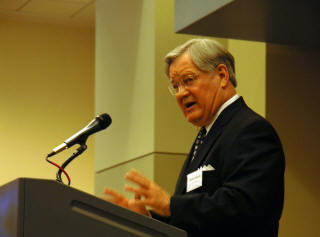 I believe . . . I believe . . .
that
in this next to last “I believe” article, I probably should say something
about the future of The Center for Baptist Studies at Mercer University. A
number of people, upon hearing of my retirement at the end of this calendar
year, have asked, “What will happen to the Center?” Before a brief comment
about the Center’s future, I need to say a word about the Center’s past.
The Center for
Baptist Studies originated with R. Kirby Godsey, the Chancellor and past-President of Mercer University. Well over a decade ago, Dr. Godsey convened a
small group of Mercer professors and employees in his office and posed the
possibility of a Center for Baptist Studies at Mercer. After a few years of
continuing conversation, the Center eventually opened in July 2001. Dr. Godsey
challenged me as the founding executive director of the Center to shape its
life and to write my own job description. The last six and one-half years
have been great fun for me.
Greg Thompson and
Bruce Gourley, my two associates at the Center in these six and one-half
years, have been indescribably critical to the Center’s work. Without them my
technologically challenged life would never have gotten the Center to first
base. Greg Thompson insisted that the Center needed a monthly newsletter and
thus was born The Baptist Studies Bulletin on January 2002. Greg also
convinced me of the need for a Certificate in Baptist Studies, an online
educational program that has produced much valuable fruit over the years.
Bruce Gourley has not only enhanced these programs, but he has also brought
his professionalism to our web site and his insightful ideas to the ministry
of the Center. Without Dr. Godsey, the Center would never have come into
existence. Without Greg Thompson and Bruce Gourley, the Center would never
have continued.
At the Center
for Baptist Studies we have intentionally been multi-focused. We have tried to
design programs for Baptist laity, Baptist ministers, and Baptist scholars.
Our
conferences have been varied, often with all three groups in our sights.
The Mercer Preaching Consultation, co-sponsored by the Center and Mercer’s
McAfee School of Theology, has become, I am glad to say, a signature event in
the life of the University. The annual Baptist Classics Seminar has been an
enormously valuable learning experience for Baptist historians. A number of
our general conferences have focused on church/state issues, and Brent Walker
of the Baptist Joint Committee of Religious Liberty in Washington, DC, has
been a popular and regular speaker. Our
A. H. Newman Scholars program, a one week sabbatical reading program in
Baptist Studies for working ministers, has brought sixteen ministers to our
campus. But all of that work, and much more, constitute the past.
What of
the future? What will happen to the Center and its ministry? It is in very
good and competent hands! Bill Underwood, President of Mercer University, is
solidly in support of the work of the Center. Indeed, he is enthusiastic about
the Center and views it as foundational to the Baptist identity of the
University. Moreover, he sees the Center, along with other units of Mercer
such as McAfee School of Theology, Mercer University Press, and the office of
the Minister to the University, as central to establishing Mercer
University as a nerve center for Baptist life and scholarship in North
America. With the already accomplished move of the Baptist History and
Heritage Society and the anticipation of the move of the historical collection
of the American Baptist Historical Society to the Atlanta campus of Mercer
University, Mercer is in a unique place of leadership in Baptist life in North
America.
While the new leadership at the Center has not yet been named, one can assume
that President Underwood will bring a well known Baptist name to head the
Center. That search is presently underway. One can also assume that, while
many of the old ministries of the Center will continue, new and exciting
educational programs will emerge. Stay tuned.
In the meantime the work of the Center will continue under the steady and
competent hands of Bruce Gourley. Bruce will continue to edit the BSB, manage
the web site, and supervise in a general way the work of the Center until a
new executive is named. You can continue to reach him at
Gourley_BT@Mercer.edu.
I
believe . . . that the Center for Baptist Studies is in good hands, both for
the short and the long run.
Table of Contents
|
|
| |
|
| |
|
| |
|
Soapbox |
|
The Baptist Soapbox: Invited guests
speak up and out on things Baptist (therefore, the views expressed in this
space are not necessarily those of The Baptist Studies Bulletin, though
sometimes they are).
Climbing upon the Soapbox this month is Fred Lewis,
Senior Pastor of First Baptist Church of Indianapolis, an American Baptist
congregation.
"Why I
Am Excited About the New Baptist Covenant"
By Fred Lewis
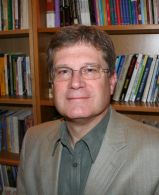
I know some people who claim they were born Baptist. Not
me. I chose to become one. I was raised in a different denominational
tradition. I chose to become a Baptist. I was adopted into the family. At the
age of fourteen, on a Sunday morning, I joined the First Baptist Church of
Bethlehem, Pennsylvania. I have been re-affirming that decision ever since.
The Atlanta Celebration of the New Baptist Covenant is a new opportunity to
once again reaffirm my Baptist identity. I am excited about this celebration
for several reasons:
1. Program
Participants
As an
American Baptist, I have a number of heroes. Some of them just happen to be on
the program of the Atlanta Celebration. I look forward to seeing and hearing
Jimmy Carter, Bill Moyers and Al Gore. I have never been in a gathering with
them before. I look forward to their inspiration and guidance. They alone
would be worthy reasons to attend.
2 . Mission
At their best, Baptist
congregations engage in mission cooperatively. Baptist congregations have
worked together to help enact Jesus’ agenda. The New Baptist Covenant will
lift up missional goals of promoting peace with justice, feeding the hungry,
sheltering the homeless, caring for the sick and marginalized, and welcoming
strangers. I want to be serious about this kind of Kingdom work and learn how
others are faithfully going about it.
3. Witness
I am
excited about participating in a Baptist event that is cooperative, uniting
and engaging. Those are not descriptive words for many of the kinds
of Baptist events I have been a part of. I look forward to being part of a new
kind of Baptist witness. I look forward to celebrating the ties that bind us.
I look forward to the diversity of Baptist denominational groups who will be
present. Perhaps we as Baptists are entering a new day.
4. Baptist principles
There are
a lot of voices that get a lot of attention who do not value Baptist
principles (even among Baptist groups). Over time, these principles become
blurred and muted, if not forgotten. I look forward to an event that will
affirm freedom of religion, the separation of church and state, the priesthood
of believers, and the autonomy of the local church. These Baptist principles
are worth preserving and celebrating.
5. Fellowship
I
graduated from a Baptist college, a Baptist seminary, and have pastored in
three different Baptist congregations over the course of 37 years. I have
friends and colleagues spread far and near. My guess is that some of them will
show up at the Celebration. I look forward to hearing them amuse me when they
say, “You look almost the same.”
6. First Baptist Church of
Indianapolis
We have
about 20 folks from First Baptist of Indianapolis who will be attending the
Celebration. I believe some new and creative energy will come out of this
historic event. I think we will see more clearly what can be done
cooperatively. I want to be present, so, when we return home, I can help keep
the momentum going.
I was
not born a Baptist. I chose to become one. I was adopted into the family. The
Atlanta Celebration of the New Baptist Covenant will be yet, another way for
me to re-affirm what it means to be Baptist at its best.
Table of Contents
|
|
| |
|
Spirituality |
|
The Spirituality of Baptist Leaders in Seventeenth Century America:
This series focuses on early Baptist
spirituality, offering insight from the past for today's Baptists. This
month's contributor is Carol Crawford Holcomb, Assistant Professor of Church
History and Baptist Studies, University of Mary-Hardin Baylor, Belton, Texas.
"The
Spirituality of John Russell"
By Carol Crawford Holcomb
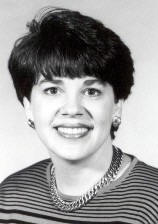 In
1665, Thomas Gold, a wealthy Puritan wagon maker and farmer, refused
to have his infant daughter baptized in one of the established
churches of the Massachusetts Bay Colony. Gold had become convinced
that scripture did not support infant baptism. In response, the
Puritan authorities placed him under censure, hauled him to court,
fined him, and ultimately threw him in prison. Nevertheless, Gold
insisted that if the Charlestown congregation would allow him this
“matter of conscience,” he would continue to walk in fellowship with
them. The Puritan church would not allow this, so Gold began
meeting in his home with friends, “some of whom came to me out of
Old England, who were Baptists.” In 1665 Gold and eight others
submitted to baptism by immersion, signed a covenant, and formed a
Baptist church. Gold served as their pastor. In a rare overture,
the Massachusetts Bay governor and council called for a debate with the
Baptists in 1668. Although it failed to win the Baptists any formal
concessions, the debate did leave a record of the piety and
conviction of a group of Baptist laymen. Most interestingly, it
demonstrates that these early Baptists were first and foremost
Puritans—devoted to scripture, hungry for purity, obsessed with
holiness, and profoundly dependent upon the Holy Spirit.
Seventeenth century Boston Baptists like Gold, and his successor
John Russell, drew deeply from the wells of Puritan spirituality in
defining their Baptist convictions. In
1665, Thomas Gold, a wealthy Puritan wagon maker and farmer, refused
to have his infant daughter baptized in one of the established
churches of the Massachusetts Bay Colony. Gold had become convinced
that scripture did not support infant baptism. In response, the
Puritan authorities placed him under censure, hauled him to court,
fined him, and ultimately threw him in prison. Nevertheless, Gold
insisted that if the Charlestown congregation would allow him this
“matter of conscience,” he would continue to walk in fellowship with
them. The Puritan church would not allow this, so Gold began
meeting in his home with friends, “some of whom came to me out of
Old England, who were Baptists.” In 1665 Gold and eight others
submitted to baptism by immersion, signed a covenant, and formed a
Baptist church. Gold served as their pastor. In a rare overture,
the Massachusetts Bay governor and council called for a debate with the
Baptists in 1668. Although it failed to win the Baptists any formal
concessions, the debate did leave a record of the piety and
conviction of a group of Baptist laymen. Most interestingly, it
demonstrates that these early Baptists were first and foremost
Puritans—devoted to scripture, hungry for purity, obsessed with
holiness, and profoundly dependent upon the Holy Spirit.
Seventeenth century Boston Baptists like Gold, and his successor
John Russell, drew deeply from the wells of Puritan spirituality in
defining their Baptist convictions.
In 1674, the
Baptist congregation left Charlestown to become the first Baptist
church in Boston. John Russell served as the second pastor of this
fellowship. In 1680, Russell prepared a “Brief Narrative” of the
church’s beliefs and practices to defend them against false
accusations from the Massachusetts Bay Colony leadership. Russell’s
intent was to defend the reputations of seven charter members
against charges that labeled Baptists as “schismatics,”
“disorderly,” and “scandalous.” Furthermore, the Baptists were
charged with undermining the church of Christ, neglecting public
worship, idolatry, and ultimately branded as “enemies of the civil
government.
With a
generous and irenic spirit, Russell defended the Baptist position by
citing scripture, appealing to logic, and emphasizing the purity of
their lives. Russell quoted scripture to explain their belief in
adult baptism and to answer charges against their church order. He
insisted that the Baptists lived upright, moral lives according to
the gospel rule. Russell pointed to the military service of Edward
Drinker and Captain William Turner as evidence that the Baptists
were loyal subjects. And when Puritan leaders insisted that
laypersons were not equipped for the ministry, Russell deferred to
the authority of the Holy Spirit. “We do not think,” rejoined
Russell, “that the Spirit of God is locked up within the narrow
limits of College learning” (Brief Narrative, 170).
These
emphases position Russell’s rhetoric firmly within the Puritan
tradition. Nothing in Russell’s Narrative or Gold’s earlier
debate challenged the basic tenets of the Westminster Confession.
Thus it was not a departure from Puritan convictions, but a radical
Puritan spirituality that motivated this particular group of
Baptists in Boston. The Puritan impulse drove their rigid
adherence to scripture. Determined to be faithful to the New
Testament, Baptists rejected infant baptism. A longing for purity
led them to withdraw to practice their faith. Indeed, said Russell,
the Baptists merely wished to “enjoy all the ordinances of Christ
with more purity, and worship him according to gospel
institution” (Brief Narrative,156. Italics mine).
The New
England Puritan experiment shaped Baptists’ longing for a personal
experience with Christ through the Holy Spirit. As William
McLoughlin observed: “what drove the Baptists . . . was that
fulsome, heartwarming, soul shaking experience of the Holy Spirit
which lay at the base of the whole Puritan movement.” (McLouglin,
31) Even Russell’s appeal to “tenderness of conscience” came from
Puritan theology. Although by no means unambiguous, Puritan writers
such as William Ames had earlier affirmed that there was a bond
between the human conscience and God that no human institution could
violate [1]. Puritan divines had appealed to conscience in their own dissent
against the Anglican authorities. Just as the Puritans had broken
free from the constricting limitations of the Church of England in
order to give fuller expression to their own pious longings, the
Baptists likewise, broke free from the Puritan establishment which
they felt would choke their faith. Nevertheless, the Baptists
remained children of the Puritans and in many respects, the
spirituality of Boston Baptists was the old Puritan spirituality
“writ large.”
Table of Contents
|
|
|
|
|
|
A Baptist Studies Bulletin Special:
We wish to draw your attention to two
newly-released volumes of relevance to today's Baptists.
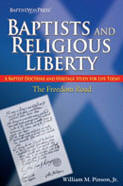 Baptists and
Religious Liberty: The Freedom Road Baptists and
Religious Liberty: The Freedom Road
by William M. Pinson, Jr.
Published by BaptistWay Press
of the Baptist General Convention of Texas, this volume is one of a series
of books on Baptist doctrine and heritage intended for individual and group
study in Baptist life. Pinson, former pastor, seminary president and
executive director of the Executive Board of the BGCT, does an excellent job
of tracing, in a highly readable format, the Baptist heritage of religious
liberty and separation of church and state. Pinson clearly reminds
readers that today's religion in public life headlines cannot be properly
understood apart from the perspective of four centuries of consistent
Baptist witness. Names and stories familiar to students of Baptist
history come to life and speak across generations. This volume is an
excellent choice for introducing contemporary Baptists to a central tenet of
the Baptist faith that too often lies submerged beneath the rhetoric of
today's culture wars.
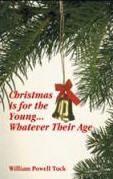 Christmas is for the
Young... Whatever Their Age Christmas is for the
Young... Whatever Their Age
by William Powell Tuck
A long-time pastor and seminary professor, Tuck has "always loved the Advent
and Christmas season." A timely arrival, this volume from
CSS
Publishing is a compilation of "16 Christmas Sermon Stories" intended to
be "a source of inspiration for personal meditation or small group studies."
Whereas Christmas day has long been a special time for Christians at large,
many Baptists in recent years have come to a greater appreciation of the
larger Advent season. Tuck helps the reader personally engage in the
Advent and Christmas season, pointing the way to the simplicity and
mystery of the incarnation, drawing upon the scriptures and imagination to
invoke the true meaning of the the holiday celebration. In the midst
of the busyness that marks the holidays, it is worth taking the time to read Christmas is for the Young.
Table of Contents
|
|
In Response |
|
In Response to . . . :
The Associate Director of the Center for Baptist
Studies, Bruce previously served as a campus minister and professor of Church
History. In addition, he is an Internet entrepreneur and photographer,
and is ABD in his doctoral studies in American History at Auburn University.
"Baptist Bloggers"
By Bruce T. Gourley

Where do you turn for Baptist news?
Odds are, the
Internet supplements any printed Baptist news publications to which you
subscribe ... assuming you still subscribe to print publications.
The Gutenberg
printing press empowered the Protestant Reformation by allowing Martin Luther
and other movement leaders to disseminate sermons and tracts throughout Europe
with astonishing speed: a mere matter of days. More than 500 years later, the Internet
allows any Baptist to instantly publish his or her views and
opinions on any subject matter, to a worldwide audience. Such is
the world of blogs and blogging, a concept birthed a mere ten years ago, that
currently symbolizes the revolutionary nature of the Internet in terms of the
dissemination of information.
Surfing the Internet in
search of Baptist news is certain, sooner or later, to lead one to the world
of Baptist
blogs. Loved or hated, Baptist bloggers are here to stay ... at
least until the next publishing revolution. Some Baptist bloggers clash
with denominational leaders. Others parrot party lines. Many are
trying to make a name for themselves, and a few have succeeded.
Often lost in the blur of
our fast-paced, technological society is the fact that most Baptist bloggers
are non-journalists expressing personal opinions and passing along "insider
information" that reinforces their own point of view. Ideologies aside,
the scores of Baptist clergy and lay persons publishing blogs have upended the
way concerned Baptists learn about current events in the larger Baptist world.
Even Baptist journalists now turn to blogs in search of news leads that five
years ago may never have surfaced.
Should blogging as a mass
movement prove to have any lasting power, a few of the Baptist persuasion may
"rise to the top" and gain credibility akin to journalists. In the
meantime, if you place a premium on reliable and trustworthy news, pay
attention to how professional religious journalists interact with the "blogosphere."
Which blogs do journalists reference, and in what manner? Who, among
bloggers, do journalists deem as credible? And finally, which
journalists have joined the blog "revolution" by personally utilizing the
medium?
The power of the printed
word centuries ago enabled, on a practical level, Protestant Reformers to
topple religious empires and create new paradigms. The power of today's
digital word is just as dynamic. But we must be careful to whom we turn
for news and information, for this revolutionary time in which we live holds
forth both promise and peril.
Table of Contents
|
|
|
|
| |
|
| |
|
Recommended Online Reading
for Informed Baptists
Compiled by Bruce Gourley
Belmont and
Tennessee Baptists Reach Settlement
Associated Baptist Press
Another Baptist university severs state
Baptist ties.
In God's Name
The Economist
Contrary to predictions that religion would
diminish in the world in the face of advances in science and technology, faith
instead plays an increasingly prominent role in world affairs. "Moreover,
from a secularist point of view, the wrong sorts of religion are flourishing,
and in the wrong places. In general, it is the tougher versions of religion
that are doing best—the sort that claim Adam and Eve met 6,003 years ago."
Also
read Martin Marty's take on the article.
15 Green Religious Leaders
Grist
Fifteen spiritual leaders who are spreading
the eco-gospel.
|
|
| |
|
| |
|
Dates to Note
January 30 - February 1, 2008, New Baptist
Covenant Celebration, Atlanta, Georgia. See advertisement above or
click here for
more information.
April 1-2, 2008, Urban Mission Workshop, McAfee
School of Theology, Atlanta, Georgia. Speakers include Rev. Joanna
Adams, Rev. Timothy McDonald, Rev. Tony Lankford and others. More
information is
available
online or by emailing Larry McSwain at
mcswain_LL@mercer.edu.
April 3, 2008, 25th Anniversary Celebration and
Judson-Rice Dinner honoring Walker Knight, Loudermilk Center, Downtown
Atlanta, 6:30 PM. Visit Baptists
Today online or call 1-877-752-5658 for more information.
May 22-24, 2008, Baptist History & Heritage
Society Annual Meeting, Mercer Atlanta campus. The theme is "Baptists
and First Amendment Issues." Visit
the BHHS website for more
information.
June 19-20, 2008, Annual Cooperative Baptist
Fellowship General Assembly, Memphis, Tennessee, Cook Convention Center.
Information
and registration.
July 16-19, 2008, British Baptist
Historical Society Centenary Conference, International Baptist Theological
Seminary, Prague. Theme: Baptists and the World: Renewing the Vision.
Keynote Speaker: Dr. Bill Leonard. If you have a proposal for a short paper,
email Dr. Ian Randall at Randall@ibts.cz
by March 1, 2008. Click here for more
information and registration information.
If you know of a Baptist event that needs to be added to
this list, please
let us know. For a full calendar of Baptist events, visit the
Online Baptist Community Calendar.
Table Of Contents
|
|
| |
If
you do not wish to receive BSB any longer, please
Click Here to unsubscribe. |